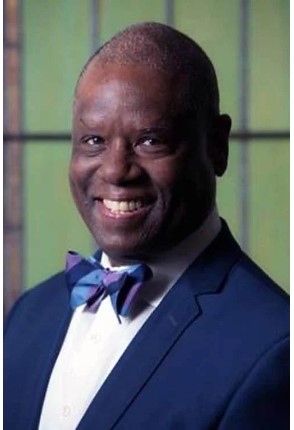by Rev. Larry Pickens
Reparations is a controversial topic that has not gained a significant footing in many of our faith communities. Injecting it into our congregational discussions of theological life has been an elusive prospect.
I recently participated in a forum sponsored by The Council for World Mission titled ‘A Theology of Reparations: Consultation Under the Onesimus Project (TOP)’ in Harare, Zimbabwe. I spoke in my capacity as the executive director of the Pennsylvania Council of Churches.
My presentation theme was, ‘A Theology of Reparations: Addressing Multigenerational Trauma and Creating a Framework for Restorative and Reparative Justice.’ In his book My Grandmother’s Hands, author Resmaa Menakem asserts that Black people have developed, over many generations, body-centered responses to trauma that blunt the effects of racism and White supremacy.
“The Black religious experience is a spiritual response to trauma that involves a body-centered worship encounter where the response of the faithful includes individual and collective humming, rocking, rhythmic clapping, drumming, singing, grounding touch, wailing circles, and call and response.” The Black Spirituals were body-centered responses designed to help settle enslaved people as they sought to salve the effects of their socialized trauma.
Black people share a history of both trauma and resiliency in the United States. Succeeding generations of Black people carry this history of trauma that began with our enslavement, continued through Jim Crow segregation and still plagues or reality today.
Addressing multigenerational trauma requires a reparative process in which our faith communities reject White supremacy and the ‘othering’ of people because of the color of their skin, gender, sexual orientation, immigration status or any other characteristic that we use to separate and isolate other people. It is a call to see people not as scapegoats poised to take something from us, but as neighbors.
My presentation also included tangible efforts taking place in the United States that are designed to provide reparative justice for Black people. One such project includes an effort in which the Pennsylvania Council of Churches has been engaged. James Baldwin once said that “urban renewal meant Negro removal.”
Sharing our experience at the Pennsylvania Council of Churches includes work that we have done with the Bethel African Methodist Episcopal Church, established in 1808. The church has a long history of significant ministry in the African American community of Pittsburgh.
In 1957, Bethel AME Church was demolished by the city of Pittsburgh as a part of urban renewal after city authorities identified the church building as blight within the Lower Hill District of Pittsburgh. At the time, the congregation received $240,000 in compensation for the eminent domain taking of its church building, which was part of redevelopment in the area.
Bethel AME Church was victimized by a ‘legal taking’ and did not receive adequate compensation. This area has now been developed to include multimillion-dollar structures, which also displaced Black families while creating housing and business infrastructure from which African American communities have not benefitted. In fact, the congregation and its people were relegated to a segregated area of the city that is bereft of quality schools, services and economic development capacity.
Addressing this historical wrong has brought together ecumenical leadership, business and community members and legal scholars who embrace the practical application of reparations as we build new relationships of hopefulness between the Pittsburgh community and the African Methodist Episcopal Church.
The effort has allowed for the formation of Ecumenical Table Talks and ecumenical worship models for addressing reparations. This example can be replicated in a global and ecumenical context.
Practical assistance was provided by law students at Duquesne University Law School. These students authored a white paper outlining the legal rights of Bethel Church. There were also significant conversations with civic leaders and the Pittsburgh Penguins Hockey Club, which holds the development rights to the property where the church previously existed.
Bethel African Methodist Episcopal Church has been central in creating a reconstituted ecumenical movement within the Commonwealth of Pennsylvania.
It took 65 years for significant conversations to take place in a substantive way, involving city and local leadership. Although in most cases justice delayed is justice denied, something different happened in our context. It became clear to our community that reparations are a call to justice and repair that brings people together as we redress what history has overlooked.
Bethel’s efforts, inclusive of ecumenical and interfaith engagement, led to a historic agreement with the Pittsburgh Penguins for the church to use a 1.5-acre piece of land near the congregation’s former site to develop affordable housing and economic initiatives.
People of faith have a role to play in healing our land and creating an environment in which community is built. Finding human dignity in all of God’s people and working toward justice is the beginning of this repair.
(Pickens is executive director of the Pennsylvania Council of Churches in Harrisburg, Pennsylvania.)


